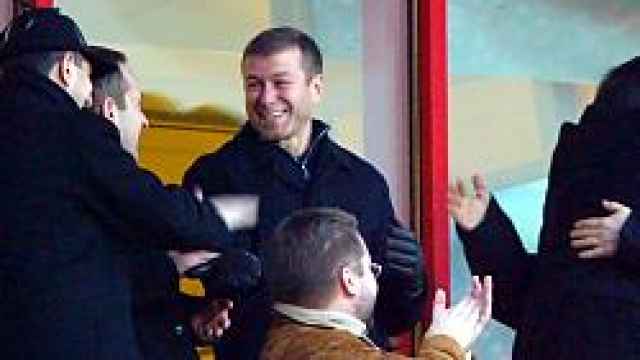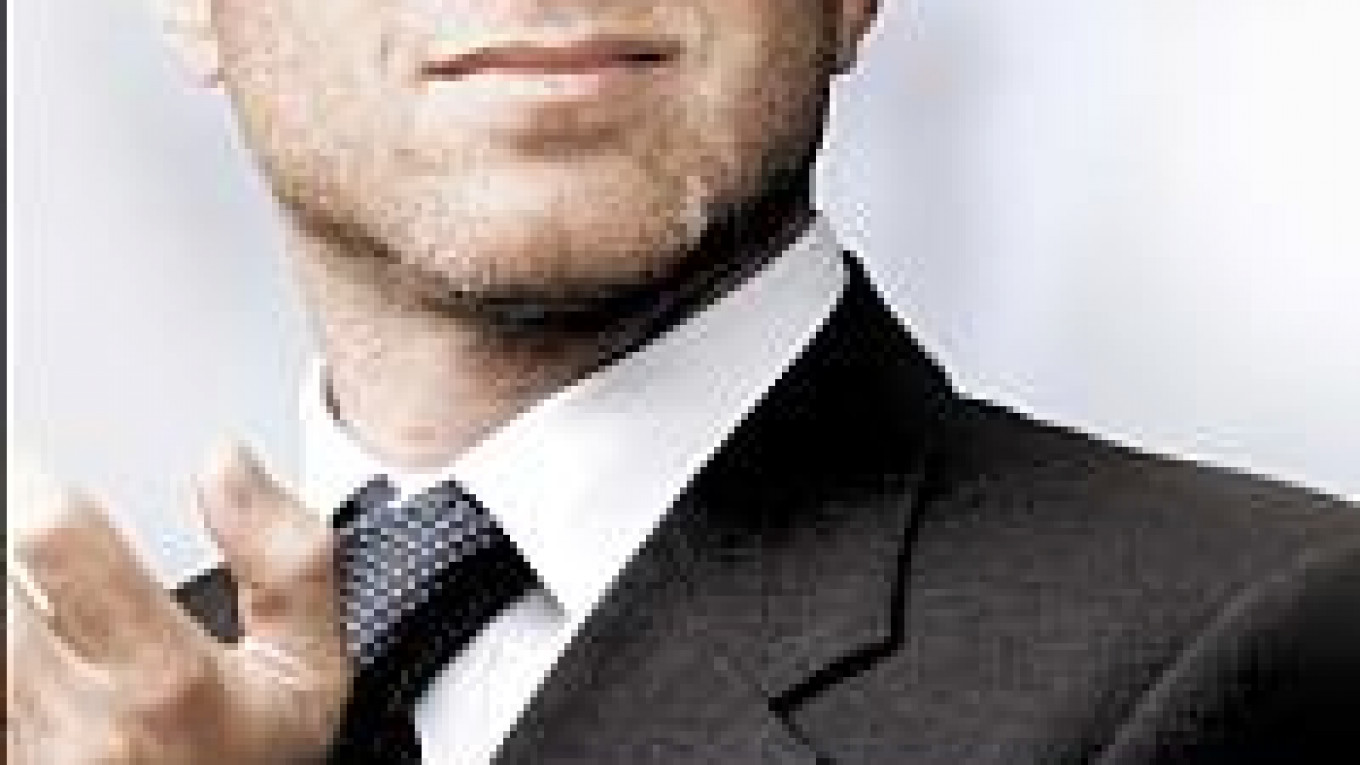It's a far cry from the days when Abramovich was nicknamed the "stealth oligarch" and a Russian newspaper offered a million ruble reward just to obtain a photograph of him. Back then, even some of his own employees did not know what he looked like. "Who's that scruffy bloke on the photocopier?" a PR recruit remembers asking when he arrived at the Sibneft oil major in late 1997. "That's Roman; it's his company," he was told.
Given the splash that Abramovich has since made in Britain, it was only a matter of time before someone took a stab at writing his biography. The ingredients are tasty enough -- the Jewish orphan who became part of the Yeltsin Family -- and the title practically writes itself: "Abramovich: The Billionaire From Nowhere." But as authors Dominic Midgley and Chris Hutchins discover, trying to unmask the real Abramovich is a bit like stirring a barrel of his oil.
The main difficulty facing potential biographers is that Abramovich is protected by so many bodyguards, PR people and lawyers that it is impossible to get near him. Friends and associates are also reluctant to bite the hand that feeds them by participating in an unauthorized biography. As a result, the authors rely on the testimony of people outside his immediate circle, with varying degrees of success. Former neighbors in Abramovich's hometown of Ukhta describe him as a "cheerful" and "sociable" child, despite the early loss of his parents. One of his teachers also remembers a "very lovable boy," while a fellow army conscript recalls him organizing mushroom-picking expeditions. Even historian Orlando Figes chips in with an anecdote about meeting Abramovich in the toilet of a fashionable London restaurant.
The most entertaining source is Alexei Venediktov, the editor of Ekho Moskvy radio, who provides the authors with their one scoop about Abramovich: that in 1999 he interviewed candidates for Vladimir Putin's first Cabinet. This revelation leads to a priceless moment when the authors inform Boris Berezovsky that, at a time when he was trying to persuade Abramovich to form an alliance against Putin, the two of them were already so cozy that they were choosing ministers together. Berezovsky is described as being "uncharacteristically speechless for a second or two before saying, 'I didn't know that.'"
The fact that Abramovich outwitted the "gray cardinal" at his own game of backstage Kremlin power-broking reflects a common perception about him. As one Moscow-based businessman is quoted as saying: "To understand Abramovich you have to realize that he is not a businessman but a politician with a small 'p.'" Berezovsky apparently saw Abramovich as a "good psychologist," and it was the younger man's talent for manipulating people that persuaded Berezovsky to take him on as a business partner. This proved to be Abramovich's big break. It was through Berezovsky that he made his political connections and was able to cultivate Boris Yeltsin's daughter, Tatyana, and later Putin.
Abramovich's first wife, Olga, describes him as having "an iron fist under a velvet glove." She recalls asking him if she should take his name after marriage. "He held me lovingly and whispered, 'Darling, it's your choice entirely.' I thought about it, but before I had a chance to respond, he added, 'Of course, if you don't take my name, I won't marry you!'"
At this stage, Abramovich was making money by selling black-market goods from Moscow to his friends in Ukhta, but when Mikhail Gorbachev lifted the ban on private enterprise he went legitimate, launching a doll-making company. In 1991, Abramovich married his second wife, an airline stewardess named Irina Malandina, with whom he now has five children. We learn from a colleague of Malandina that Abramovich was desperate and not very discriminating when it came to chatting up the stewardesses. She adds that Malandina was "a beauty" but "her legs let her down, they were somewhat stubby and short. And her fingers were short and stubby too."
It is a mark of the book's unevenness that the authors offer less detail about Abramovich's early business activities than they do about his wife's physique. The specter of libel lawyers lurks behind the text, which is peppered with disclaimers that "there is no evidence to suggest" Abramovich was involved in such and such a scam.
For instance, the well-known allegation that Abramovich hijacked a trainload of diesel to raise his working capital is mentioned, but the last word on the matter goes to a "senior lieutenant" of Abramovich, who tells the authors, "I asked [Abramovich] about the train story. ... He simply looked at me and said, 'It never happened.'" Funnily enough, Venediktov remembers Abramovich saying the same thing about his secret interviews for Putin. "[Abramovich] said, 'That didn't happen.' I said it did, because I was in the Kremlin that day and saw it with my own eyes. 'Oh,' he said, laughing, 'those were just friendly conversations.'"
 AP Chelsea Football Club owner Roman Abramovich at a Moscow soccer game. | |
As London-based journalists, Midgley and Hutchins are on surer ground when it comes to Chelsea, and they give an enjoyable account of Abramovich's dramatic arrival "from nowhere" and his first season at the club. Also fun are the chapters about Abramovich's glamorous lifestyle: his enormous yachts with helipads and submarines, his walnut-paneled Boeing with missile-jamming technology, and his palatial residences in England and the South of France. The envious, meanwhile, can snigger at the fake books that adorn Abramovich's dacha outside Moscow or his attempts to break into English high society by learning how to play polo -- apparently his progress has been hampered by the need for a translator to gallop around behind him and his tutor.
All this gossip about Abramovich has a vicarious appeal, but ultimately it brings us little closer to understanding who he is, what motivates him or where he is going. Despite the authors' best efforts, he remains an equivocal figure, obscured by rumor and kept at a distance by his army of minions. Unless Putin decides otherwise, Abramovich will no doubt make sure things stay that way. So far, he has covered his tracks well.
A former editor at The Moscow Times, Sam Thorne now freelances from Britain.
A Message from The Moscow Times:
Dear readers,
We are facing unprecedented challenges. Russia's Prosecutor General's Office has designated The Moscow Times as an "undesirable" organization, criminalizing our work and putting our staff at risk of prosecution. This follows our earlier unjust labeling as a "foreign agent."
These actions are direct attempts to silence independent journalism in Russia. The authorities claim our work "discredits the decisions of the Russian leadership." We see things differently: we strive to provide accurate, unbiased reporting on Russia.
We, the journalists of The Moscow Times, refuse to be silenced. But to continue our work, we need your help.
Your support, no matter how small, makes a world of difference. If you can, please support us monthly starting from just $2. It's quick to set up, and every contribution makes a significant impact.
By supporting The Moscow Times, you're defending open, independent journalism in the face of repression. Thank you for standing with us.
Remind me later.


